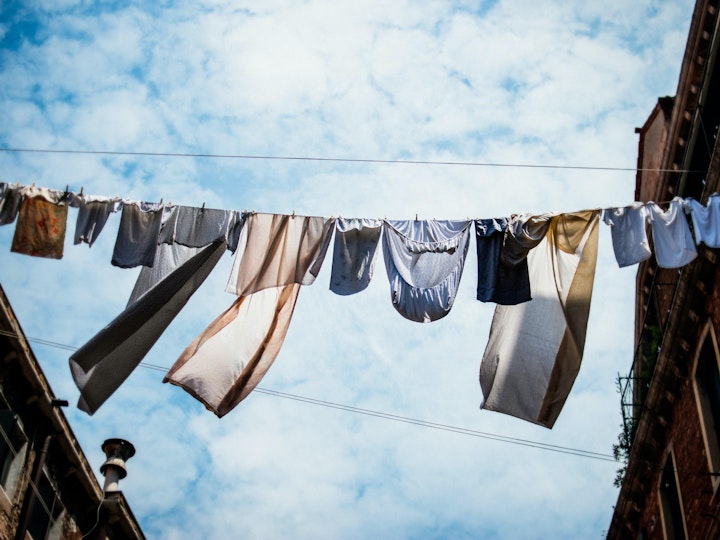Green to pink to blue: Companies’ dirty washing
You've heard of greenwashing - but what are pinkwashing and bluewashing? Dr Irene Garnelo-Gomez unpicks the unethical marketing practices of certain companies in our latest Leading Insight.

Growing awareness towards social and environmental issues is impacting our lifestyles. How? According to , UK consumers are behaving more sustainably nowadays, by avoiding single-use plastics, focusing on ‘local’ and ‘seasonal’ products and reducing overall consumption. But consumers are not interested in doing it on their own, they want businesses to help, and recognise their responsibilities as members of society.
Stakeholder pressure and the aim of gaining competitive advantage are driving organisations to engage in responsible and sustainable practices, to show they care, to show they are doing ‘their bit’. But in doing so, some pledge more than they do, and risk being accused of some type of ‘washing’.
Most people have heard of greenwashing, when companies mislead consumers regarding their environmental practices or the ‘eco’ benefits of a product or service. In fact, the media often talk about greenwashing, and even share .
However, ‘washing’ is not only done in relation to environmental claims, as socialwashing is unfortunately very common. For instance, the LGBT+ community has complained about the growth of pinkwashing, or the use of gay-friendly approaches when promoting an organisation or its products, while masking other negative actions.
Many firms have also been accused of bluewashing, specifically in the fashion industry and in relation to human rights issues. In this case, organisations commit to various principles proposed by the United Nations (hence the ‘blue’, as per the UN’s logo), such as those under the UN Global Compact or the UN Sustainable Development Goals. Yet while these form a big part of their public relations and advertising, there is little action to back them up.
What are the dangers of engaging in ‘washing’ behaviours?
We should start by acknowledging the environmental and societal consequences of these behaviours. If consumers are misled to buy ‘fake’ eco-friendly products, they would be unintentionally harming the environment (e.g. consuming sustainable products that, in reality, are not sustainable). If consumers support an organisation that sustainably innovates on one front, to disguise the wrongdoings in other areas of the 91��Ƶ��ַ����(e.g. ), they could be unconsciously aggravating problematic social issues.
From the point of view of the organisation, we would all agree that these types of practices are morally wrong, but the dangers of ‘washing’ do not stop there. By saying that they are doing more than they actually are, organisations are negatively affecting consumers’ perceptions of the firm, leading to reputation damage. Reputations take years to be built, and minutes to be destroyed. Ultimately, those changes in reputation will impact loyalty, trust and overall performance.
What could organisations do to avoid these practices?
Of course, we should start with the basics: organisations should really commit to being responsible and sustainable. This will take time and effort, and for some organisations will entail a complete overhaul, revisiting the organisation’s mission, vision and values. But that is possible, and we have of companies that have successfully done it.
In my view, organisations should focus on addressing issues that are ‘closer to home’, looking at the impact they create on an everyday basis (both environmental and social) and consider how they could be better managed. Once organisations have decided what social and/or environmental issues they are able to realistically address, they should define specific targets and goals in relation to each of them and assess how they are going to tackle them.
After the strategy is designed, it is time to communicate it. How to avoid being perceived as ‘fake’ or doing some type of ‘washing’? Be specific, be honest, explain your goals and what you are doing to achieve them, even if you are not there yet. Transparency builds trust, and trust leads to healthy relationships with consumers, investors and other stakeholders.
The solution to ‘colour washing’ is simple: be responsible, be transparent, and communicate accordingly. After all, regardless of the organisation's size or purpose, any perceived 'bad behaviour' will eventually come out in the wash.
You might also like
Measuring beyond the lines – data in EDI
What does the country need from Rachel Reeves?
Sofagate: Protocol or Mysogyny?
This site uses cookies to improve your user experience. By using this site you agree to these cookies being set. You can . If you do not wish to accept cookies from this site please either disable cookies or refrain from using the site.